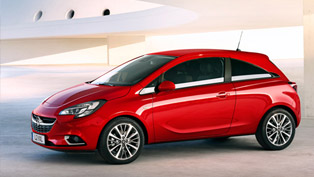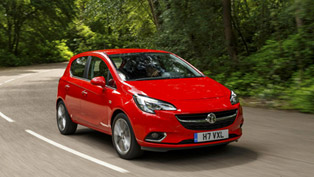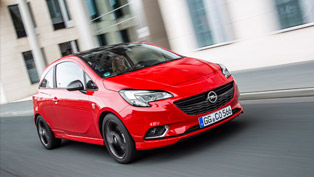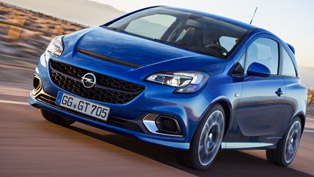Opel Corsa Hybrid
Opel presents a range of especially economical and low-emission vehicles at the IAA in Frankfurt (September 13 – 23, 2007). The current models showcase how automotive technology will look in the near future: the Corsa Hybrid concept car uses innovative technology with starter generator and stop/start automatic transmission which contributes to an average consumption of about 3.6 liters of diesel per 100 km (95 g CO2/km). The Vectra Flexpower with a 2.0-liter turbo engine designed for operation with bioethanol/gasoline mix also makes its debut at the IAA.
Opel will soon offer new ecoFLEX variants, which have the lowest CO2 emissions in their respective model line. The premiere variant – the 55 kW/75 hp Corsa 1.3 CDTI ecoFLEX with diesel particulate filter – makes its European premiere at the IAA. Available to order from December, the well-equipped five-door version produces just 119 grams of CO2 per kilometer, which corresponds to an MVEG consumption of 4.5 liters of diesel per 100 km. ecoFLEX variants of other high-volume model lines will also be available at the end of the year: Meriva 1.3 CDTI ecoFLEX, Astra 1.3 CDTI ecoFLEX, as well as natural gas-powered Zafira and Combo CNG ecoFLEX versions.
The current product portfolio highlights just how committed Opel is to the reduction of emissions and consumption. Numerous Opel models positioned around the ecoFLEX area at the IAA produce less than 140 g CO2 per kilometer.
Corsa Hybrid concept car with just 95 grams CO2 per kilometer
The Opel Corsa Hybrid concept car, which makes its world debut next month at the IAA in Frankfurt, is a result of General Motors' expanded efforts to reduce fuel consumption and emissions. Powered by the next-generation GM Hybrid system and diesel engine technology, the Corsa Hybrid concept car requires just 3.6 liters of diesel per 100 km and emits only 95 grams of CO2 per kilometer. Based on the 55 kW/75 hp Corsa 1.3 CDTI, fuel savings are largely achieved by GM's next-generation belt-alternator starter technology debuting in this concept. The Corsa Hybrid uses a lithium-ion battery.
The Corsa Hybrid concept car's hybrid technology combines the functions of a starter motor and electric generator. Its highly efficient diesel engine is also switched off by the hybrid system when the car is stopped, and restarted when the brake pedal is released. When extra power is required, such as when accelerating or overtaking, the motor provides significantly higher torque. This combination of 1.3-liter diesel engine and electric generator reduces fuel consumption and CO2 emissions. The lithium-ion battery provides the necessary electrical power for the belt-alternator starter, and the battery itself is recharged by the concept car's regenerative braking function: when decelerating, the fuel is shut off and the vehicle's kinetic energy is transformed into electrical energy.
The Corsa Hybrid concept car represents GM's global commitment to a comprehensive and cost-effective advanced technology strategy focused on producing commercially viable and sustainable cars and trucks. These include alternative fuel vehicles, ongoing improvements to conventional internal combustion engines and transmissions, hybrid-electric and electric vehicles, as well as hydrogen fuel cell vehicles.
Text and photos courtesy of GM

![2015 Opel Corsa OPC [render]](http://www.automobilesreview.com/uploads/2014/07/2015-Opel-Corsa-OPC-render-b.jpg)








